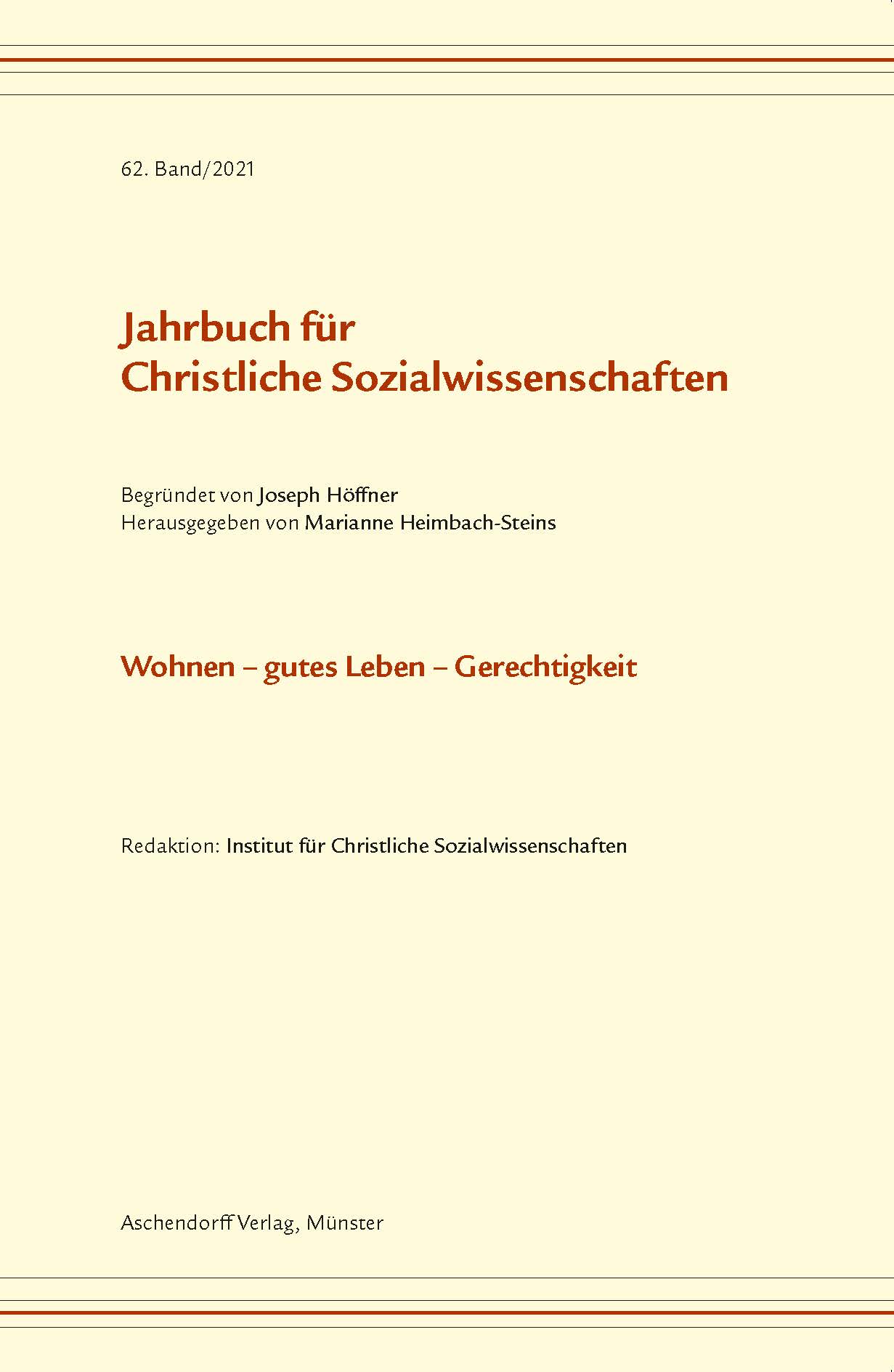Christlich-sozialethische Beiträge zu den wohnraumpolitischen Debatten der Bundesrepublik
DOI:
https://doi.org/10.17879/jcsw-2021-3550Abstract
The provision of adequate housing is one of the most pressing issues in political debates on social justice in contemporary Germany. Building on a tradition of social commitment and debates on the ethical role of property, Christian churches and theologians partake in such debates as stakeholders and researchers. In this article, we depict these Christian social ethical commentaries on housing since the begin of the Bonn Republic. Until the 1970s, Christian social ethical debates and political commitments focused on the family homestead, understood as a privately owned house (Eigenheim) and questions of land reform. Christian housing debates have subsided in the 1980s but have been revived in the last decade due in part to a spatial turn in social ethics as well as the current urban housing shortage in Germany. In comparison to earlier debates, recent discussions are less centered on questions of property, and take instead questions of structural inequality, justice and social ecology into account. Thus, disparities between urban and rural, booming and declining regions are considered, and processes of gentrification regarding socio-ecological criteria are scrutinized. Utilizing human rights language, the individual’s fundamental right to adequate housing is discussed in relation to society at large as well as ecological concerns.

